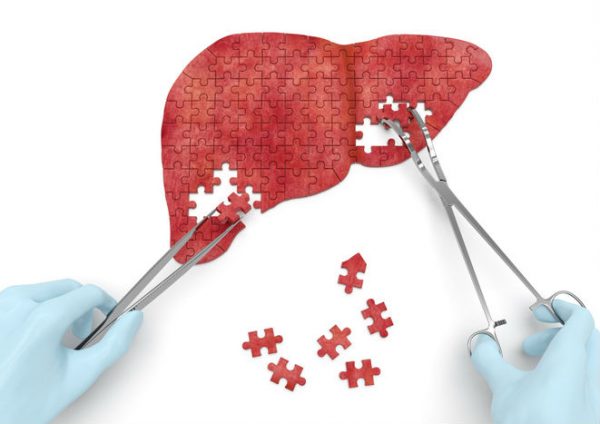
Companies in clinical development with drugs for the fatty liver disease NASH are all testing chronic treatments—medicines either injected or taken orally on a regular basis. Gene therapy offers the potential for a one-time treatment, and Kriya Therapeutics is getting its contender via dealmaking.
Kriya announced Wednesday the acquisition of Tramontane Therapeutics, a Barcelona-based gene therapy company that focuses on developing treatments for metabolic and neurodegenerative diseases. Financial terms between the two privately held companies were not disclosed.

With the Rise of AI, What IP Disputes in Healthcare Are Likely to Emerge?
Munck Wilson Mandala Partner Greg Howison shared his perspective on some of the legal ramifications around AI, IP, connected devices and the data they generate, in response to emailed questions.
In non-alcoholic steatohepatitis, or NASH, the buildup of fat in the liver leads to progressively worsening inflammation and organ damage. The chronic disorder has no FDA-approved drug therapy, and in the most severe cases requires a liver transplant. Some biotech companies are developing drugs that stand in for fibroblast growth factor 21 (FGF21), a signaling protein that regulates how cells expend energy and metabolize fats. Tramontane’s portfolio of FGF21 assets includes a program comprised of a gene therapy engineered to express a steady level of native FGF21 protein.
The Tramontane gene therapy is delivered to cells aboard an adeno-associated virus, a common delivery vehicle for genetic medicines. Administered as an intramuscular injection, Kriya contends this one-time treatment may avoid the problem of patient compliance with drugs that require chronic dosing. But dosing is just one advantage. Kriya contends that getting the body to produce more FGF21 avoids “unnatural modifications” made to the engineered versions of FGF21 in development at other biotech companies. Those changes are made to extend the half-lives of those therapies, but Kriya says native FGF21 may have better tissue distribution and binding to its receptor targets. Furthermore, continuous expression of native FGF21 delivers a steady level of this protein, avoiding the peaks and troughs associated with repeated injections of engineered versions.
In preclinical research so far, Kriya says the Tramontane gene therapy has shown efficacy and durability in animal models of obesity and NASH. Kriya expects to advance this therapy into human testing by the first half of 2025. Meanwhile, the field of NASH drug developers continues to make progress. Earlier this year, 89bio reported positive Phase 2 data for pegozafermin, an engineered version of FGF21. Akero Therapeutics is preparing for pivotal testing of efruxifermin, a fusion protein engineered to serve as an analog of FGF21. There are other approaches to NASH. Madrigal Pharmaceuticals is preparing an FDA submission for resmetirom, a small molecule designed to bind thyroid hormone receptor beta, activating it to have an effect on pathways involved in liver health.
Kriya, which maintains operations in Palo Alto, California, and Research Triangle Park, North Carolina, already had a presence in metabolic diseases. The company’s pipeline includes programs for diabetes and glycogen storage diseases. Kriya’s other therapeutic areas are ophthalmology and neurology. In an interview during the BIO 2022 conference, CEO Shankar Ramaswamy told MedCity News that most companies start with a gene therapy first, then try to solve for the manufacturing of that therapy. Kriya chose to develop its manufacturing technology platform first, then add gene therapies.
“The benefit we see of doing it that way, while it takes time to set it up that way, many of the synergies can be captured across products,” Ramaswamy said. “We can have a much wider universe of products building from that foundation up.”
Ramaswamy added that the manufacturing-first strategy is intended to reduce the cost of producing these treatments, which in turn should make gene therapy more accessible and more affordable. In addition to developing treatments for rare conditions, Kriya also aims to make gene therapies for prevalent disorders. Lowering production costs is key to achieving that goal, Ramaswamy said.
Tramontane, founded in 2021, is a spinout from Universitat Autònoma de Barcelona. In addition to its NASH program, the startup was also researching gene therapies for Alzheimer’s disease and Parkinson’s disease. Those programs are a fit for the neurology portion of Kriya’s pipeline, which spans trigeminal neuralgia and epilepsy.
Kriya is freshly capitalized. In July, the company added $150 million to its Series C financing, bringing that round to more than $430 million total. The company said it would use the new cash to continue developing its gene therapy pipeline as well as its engineering, computational, and manufacturing technology platforms. With the latest financing, Kriya expects to have enough capital to support the company into late 2026.
Photo: Sakramir, Getty Images














